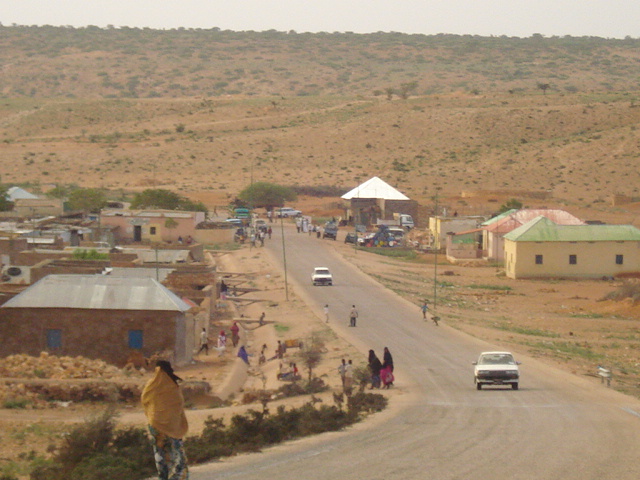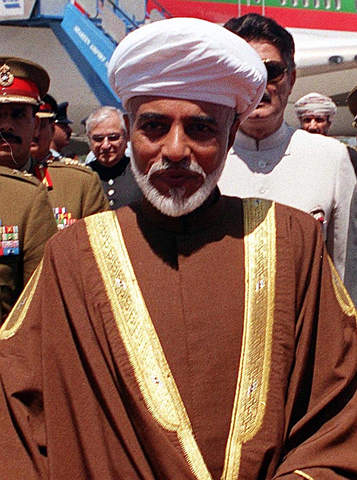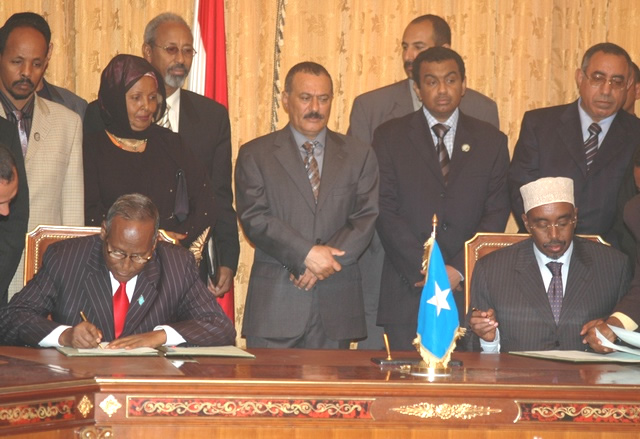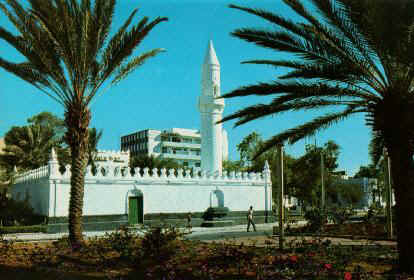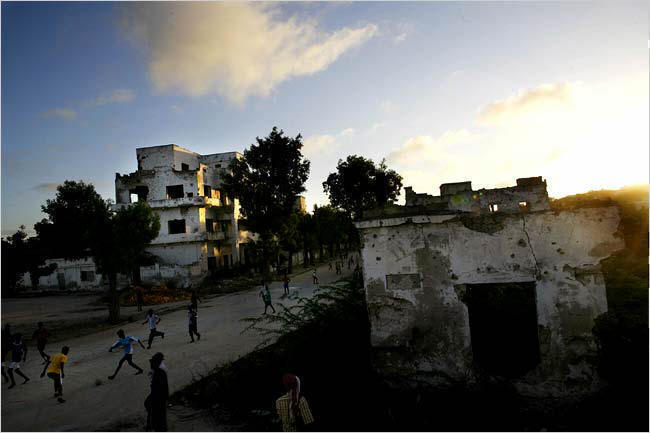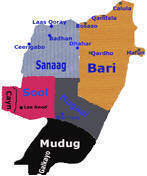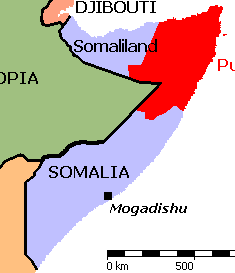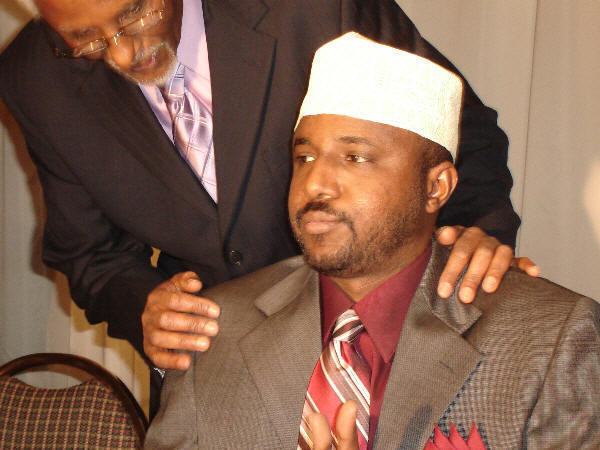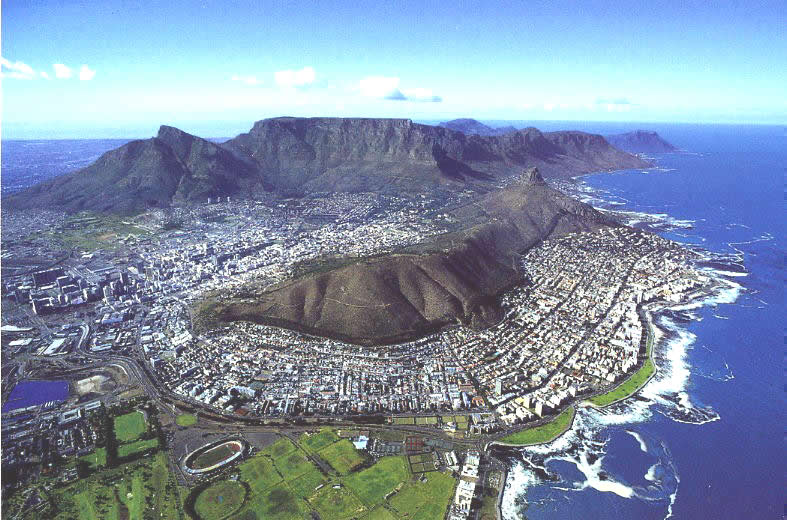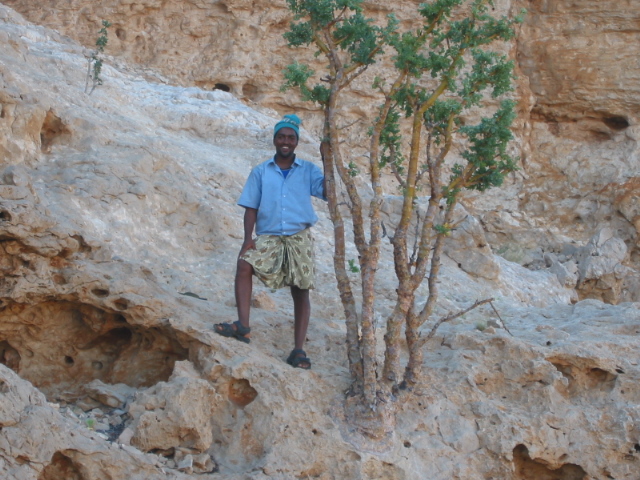
SNM and SSDF: Were they the earliest predators?
Biyokulule Online
August 06, 2010
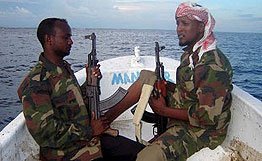
The SNM and SSDF campaigns of late 1980s and early 1990s were the prelude to the upsurge in modern piracy.
In
It was in the beginning of 19th century when
These remarkable pirate colonies thrived from the riches plundered by the sea scavengers. As long as these sea scavengers enjoyed the support of clan elders, all went well. Some of the scavengers have even ruled these pirate settlements as chiefs and clan-leaders and continued to carry on their scavenging business
Alarmed at the level of pillaging going on around the
So important did shipwrecks become to the sultanate that in 1878 an American visitor among the Majeerteen reported: �A priest is stationed in the mountains near
Such details of ancient piracy seem as if it affected the mentality of today`s Somali armed militias. The earliest of these armed factions who were attracted by the movement of vulnerable sea transports were the predators (pirates) from Somali National Movement (SNM) and Somali Salvation Democratic Front (SSDF).
The information collected by Biyokulule Online from various local sources reveal that the story of maritime predation involves much more than a clash between Somali fishermen and foreign fishing trawlers. Thus, reducing the �out of control� piracy on the Somali coast as �a side-effect of Somali fishermen taking to the seas with weapons as a means of defending their tuna-rich waters� is not acceptable.
Here, we compiled few news-coverage on Somalia, to explain that piracy is a subset of violent maritime predation in which armed factions (such as SNM, al-Shabaab etc) are part of a widely recognized war to overthrow a legitimate regime by any means necessary � including acts of sea piracy.
In the name of �freedom fighters� has generally been held to be the justifications for piracy in the 1980s. And in early 1990s, as the case is in northeastern part of
It was precisely the ineffectiveness of regional administrations (Puntland etc), in relation to piracy, which led to the practice of reprisals by the foreign warships.
Rebels report seizure of "ships" carrying Italians.
BBC Monitoring Service:
December 18, 1989
"Units of the SNM Coastguards seized a ship flying a Panamanian flag, along the Somali coast, on 5th December 1989", Radio SNM reported on the 15th. The ship, which was heading for Berbera, was carrying nine Somalis and five Italians and brought to three the number of ships captured by the SNM, the radio said, adding: "The SNM warns all shipping agencies not to co-operate with the dying regime of Mogadishu, because we shall not be able to ensure the safety of ships and their crews against any dangers that they may be exposed to."
� 1989 The British Broadcasting Corporation . All Rights Reserved.
Somali Rebels Say They Seized Ship, Shot Down Jet Fighter
January 22, 1990
Radio SNM said rebel forces seized the unnamed ship on January 15. When the government sent two MiG-19 jets to bomb it, one of them was shot down.
The broadcast, monitored in
It said SNM forces also killed 11 soldiers in a skirmish on the outskirts on the northern port city of
There has been no independent confirmation of the SNM`s claim to have seized the ship but in December it hijacked the Italian freighter Kwanda carrying fuel to the East African country.
The ship and its 12-man crew were released unharmed on January 20 after being held for 20 days while the cargo was unloaded.
An Ethiopian rebel group, the Eritrean People`s Liberation Front (EPLF), has intercepted three cargo vessels in the
� 1990 Reuters Limited
Somali rebels claim capture of ship; clashes near Berbera
BBC Monitoring Service:
January 23, 1990
SNM coastguards on 15th January captured a cargo vessel belonging to the regime in Somali waters of the
� 1990 The British Broadcasting Corporation. All Rights Reserved.
SSDF Group Seizes Two
[Text] Djibouti, 6 April (AFP)-An armed Somali group seized two Taiwanese boats and will put their captains and crew on trial for illegal fishing off the Somali coast, a group statement issued here Monday [6 April] said.
The Somali Salvation Democratic Front (SSDF) seized the two vessels, identified as the Cherng of Yue Sa No 3 with 16 crew and the Chian Yuein No 232 with 17 crew, on April 1 off Baila.
The crews would also be tried for using internationally banned fishing practices seriously damaging the environment, the SSDF representative to
In its statement, the SSDF said hundreds of fishing boats from
The SSDF said it could issue fishing permits to those who requested them from regional SSDF headquarters in Bossasso.
Behind the lines of pirates
Daily News (
April 09, 2010
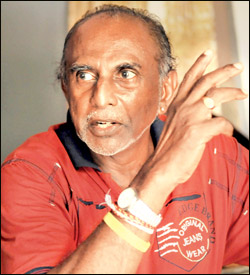
Captain Sarath Weerewansa of the ship M.V. Leila. Pictures by Rukmal Gamage
Captain Weerewansa returned to his motherland two weeks ago after being freed from the clutches of
Piracy in
`This was not a dealing I had to do with pirates. We were taken into custody by Somaliland State Government, he added with a feeling of despise.
When asked what took him to Somaliland he said, `
Revealing the reason behind for such an arrest Captain Weerawansa said that
`But the company was not that quick to pay the fine and release us. We were optimistic of a rapid release. But nothing of the kind happened. They say it is a democratic Government. Their democracy was proved by the way they treated us. They treated us in a very appalling way. Actually they didn`t know what democracy was. It was a bunch of terrorists ruling the country.
The crew of my sister ship was assaulted and tortured by the authorities. August 7 was the day on which we were arrested. Two days after the arrest the ship was taken into the pier. I was able to contact the owner of my ship and he was telling me he was doing his very best to release us. He was asking for time.
A week became a month. Month became many months. To take the ship out of Somali waters we were asked for the port clearance certificate. But we were unable to submit that certificate as we were under arrest. Captain Weerawansa thought it best not to inform the family the circumstance he was under. Now already three months had passed. He was helpless thinking about the plight his family would have had to confront if he was not released forthwith.
`But I didn`t tell them what was happening around me thinking that they will be scared. I expected the company and other accountable authorities to do their best to get us released. But that was not what really happened. `My hopes began waning when I felt the owner ignoring my plight. He avoided answering the phone. Ultimately he severed the connections he had with us.
There was a shortage of food and water. No words can describe the difficulties we had to face, revealed Captain Weerawansa. A Somaliland Journalist got an interview from me. It was published in their paper. Ultimately the plight we were undergoing in this unknown land was leaked to the international media.
They had a field day interviewing me over telephone. `
Weerewansa and crew were detained under no court order. He appealed to the international community to stop sending their ships to
The President of Somaliland made a friendly approach towards us. They took us to hotel where a media gaggle was organized. So they told me to speak good about
But I was not shaken. I was adamant and repeated my allegations without letting down my criticism against the Somaliland Government. I told the
The approach the Somaliland Government adopted on us changed its colours meanwhile. They came up with an idea I never expected. They asked me to change my religion, then marry a Somali woman and serve
When food and water was running out they took a long time to replenish. I went from pillar to post asking my release. But most of the officials showed their unconcern, most of the discussions I had with them ended up with heated arguments.
If I tell you frankly the helplessness I felt, when the ship`s owner was online I asked what was happening`.
He told me he was not competent to do anything. I demanded why he didn`t tell me earlier about this in which case I could do something worthwhile without having my faith in you. `Is this the way I am rewarded with for looking after your ship? I demanded. Some Indians in my crew thought to take their life in water.
My health condition was deteriorating. I was hospitalized twice. Second time was due to diarrhea. Though they didn`t torture us physically they did mentally.
How they were released
The crew of my sister ship was released under a court order. But still we were detained. I struggled with my argument Law is law. But the official seemed not flexible enough. Ultimately they had to release us as they couldn`t withstand the international pressure unleashed on them. I owe a huge debt of gratitude to the High Commissioner in
During my detention my family had lot of hardships. My telephone line and the electricity were cut off. But when my wife told Sri Lanka Telecom and Electricity Board the conditions we were in they supplied the facility unhindered, I should admire SLT for providing the facility as it was the only way possible for me to hear the voice of my wife and child - the only solace I had.
Captain Weerawansa has not yet been paid for 7 months by his company. The company owner had changed the name of the company in fear of prosecution. I seek the help of media to go before international human rights.
I need to take legal action against Somaliland Government for torturing me and my crew. But I know next to nothing about the procedure I will have to follow. So I request from able authorities to make me aware of the possibilities bringing those rascals to book,` concluded Weerewansa.
� Copyright 2010. HT Media Limited. All rights reserved.
Crew of MV Leila Finally Freed from
by Venatrix Fulmen (ECOP-marine)
April 09, 2010
The rump-crew of three Sri Lankans and two Pakistani nationals which was held with the vessel MV LEILA inside the Berbera harbour entangled in a legal tussle involving burned cargo on her sister ship MV MARIAM STAR has finally been freed today on Monday and could board a plane to
Mr. Mohamed Ghadeeb of Abu Dhabi, who stands accused as the vessel`s owner and who is behind Al Hufoof Shipping and another company named New Port Shipping - fronting as the owner-managers of these vessels - did never even go to Somaliland to solve the problems his shipping company has with a court ruling subjecting him to pay damages, fines as well as harbour and court charges. That he first of all abandoned the crew of MV LEILA for all that time they were stranded since August last year with their ship on a court-chain, a conning
THE SHIPOWNER ABANDONED THE CREW AND IS NOW BLACKLISTED
Though all crew members had resigned from the company since long, they were illegally held by the General Manager of the Port Authority of Berbera and forced to take care of the vessel - a situation, which only can be described as hostage situation and slave labour enforced on an expatriate crew - a situation which tarnishes the reputation of Somaliland seriously.
The clandestine companies and their ships at the core of the case have in the meantime been blacklisted and every seafarer is aware which trouble he can get himself into, if he would accept to work for that owner - word in the harbours travels fast.
DEADLOCK BROKEN
ECOTERRA Intl., who had been requested to help by the crew and their governments, thanked the tireless efforts of the Governments of Sri Lanka and Pakistan, which together with their missions in Nairobi and Dubai and all concerned parties stood together to finally free all the expat crew.
Seven Indian nationals had been channelled out of
STILL GRIEVANCES
Meanwhile these seven Indians are stuck at home with not only their wages for over six month not paid, but with a bill which was slapped on them from their own ministry, claiming the air-travel costs and restricting the seafarers from seeking any further work until the Indian government gets back these monies.
It is hoped that all the governments involved will show now some further support and assist their seafarers to receive their full payments and dues from the shipowner, who let them suffer for so long.
|
|
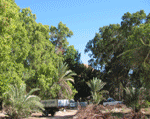 Sawirro Somaliya 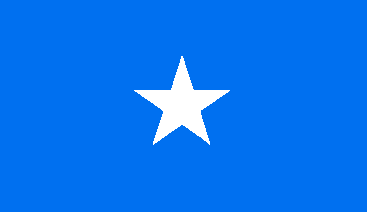 |
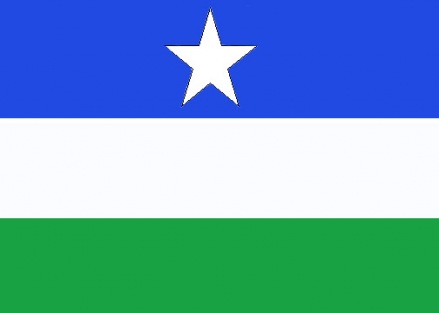
|
GOVERNANCE
The Scourge and Hope of Somalia A New Book By Ismail Ali Ismail 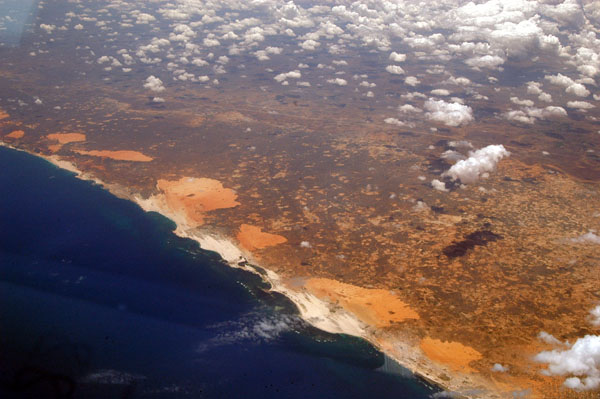 Which Way to the Sea, Please? By Nuraddin Farah Dhulkii Burcad-Badeedda .jpg) Budhcad Badeed Weli Qiil ma Leeyahay? 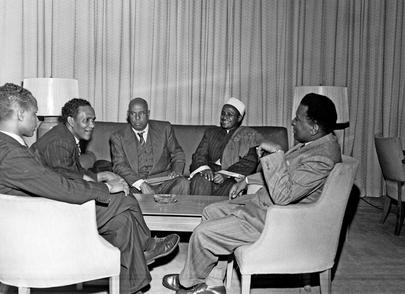 SYL LETTERS By A S Faamo |
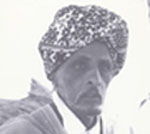 |
 |
© Copyright BiyoKulule Online All rights reserved�
Contact us [email protected] or [email protected] |

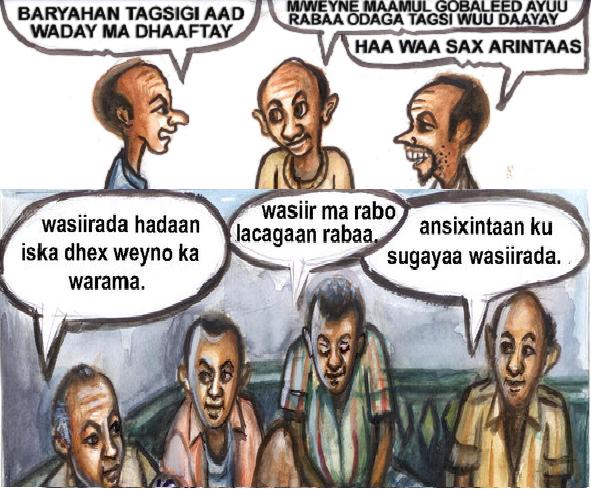
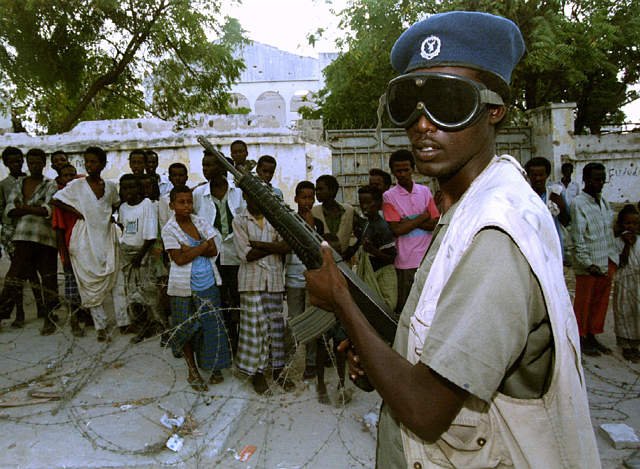


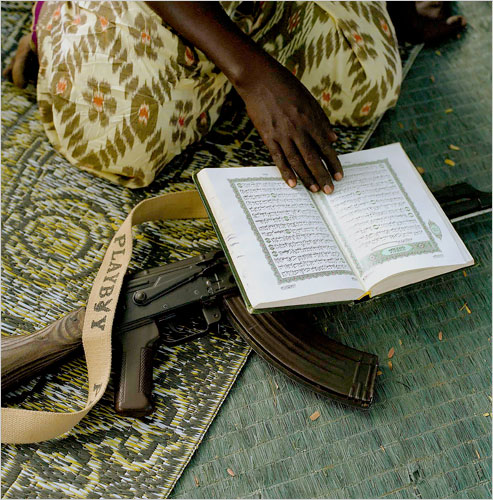

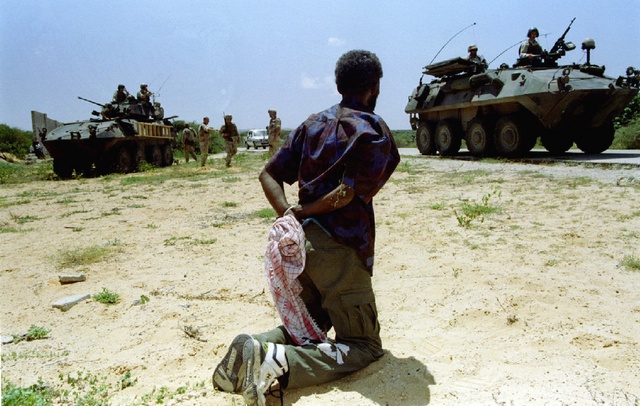
.jpg)




